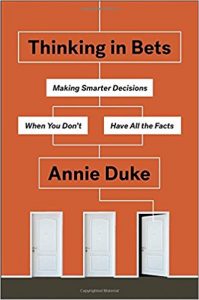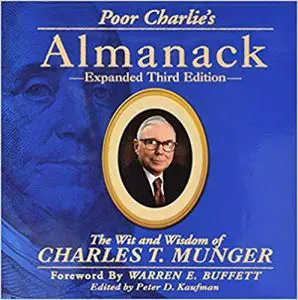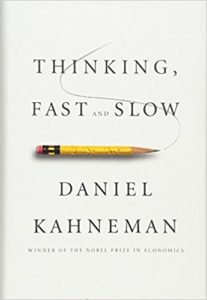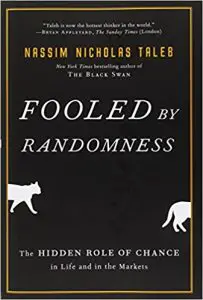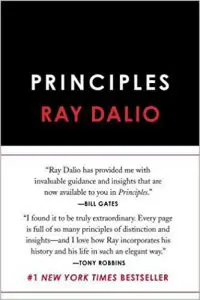Home — Collections — Best Books on Cognitive Biases & Improving Your Decision-Making Process
Best Books on Cognitive Biases & Improving Your Decision-Making Process
Table of Contents
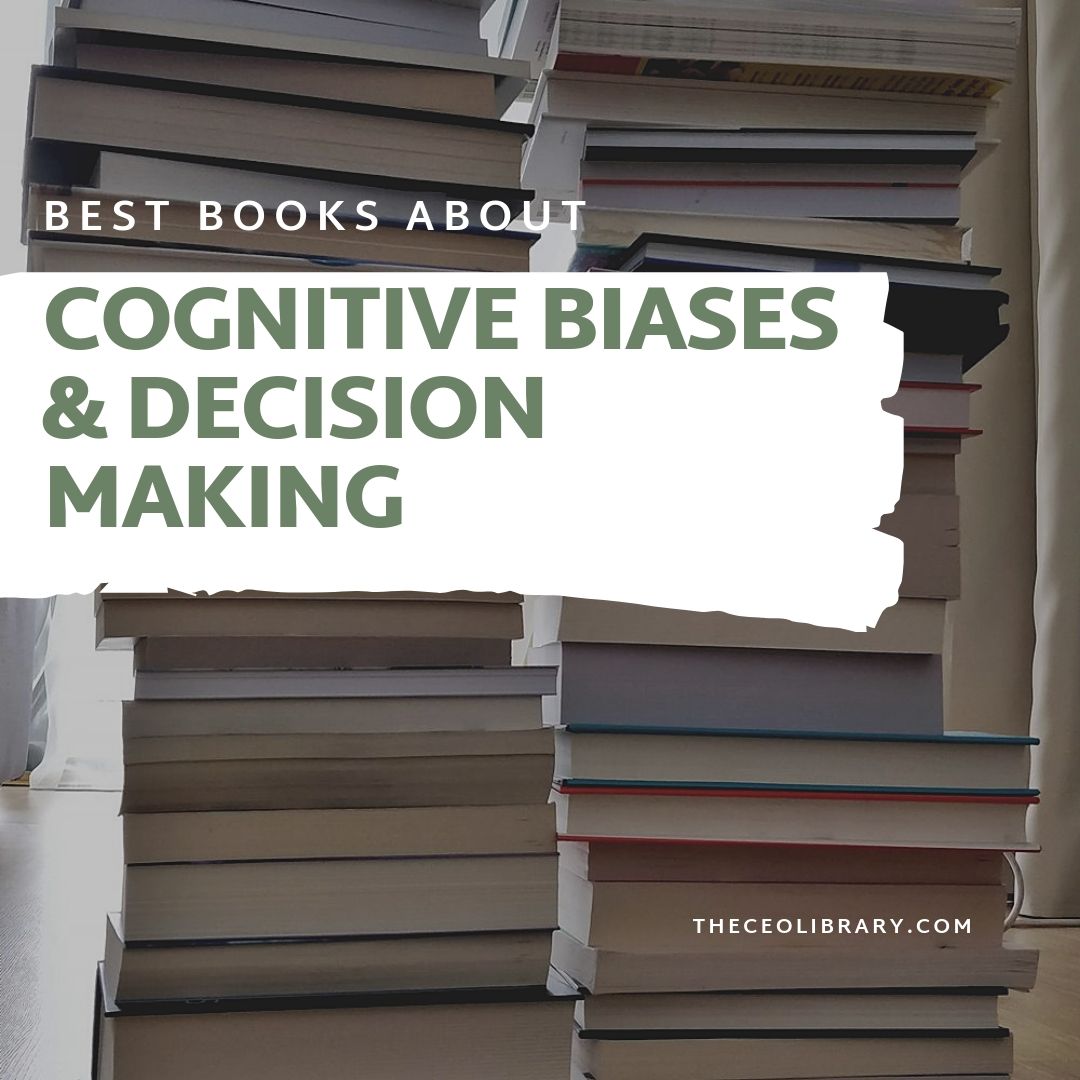 “Can you suggest me some good book which can help with my decision making process? I realized that over the years I am making more and more bad decisions or no decisions and I find myself really confusing state when taking stand on anything. I know it’s a long way but it would be great if you can suggest some books that you find good and also some of your own learnings as well.”
“Can you suggest me some good book which can help with my decision making process? I realized that over the years I am making more and more bad decisions or no decisions and I find myself really confusing state when taking stand on anything. I know it’s a long way but it would be great if you can suggest some books that you find good and also some of your own learnings as well.”
One of our readers addressed me this question a few days ago and it deserves a longer reply than I can offer through a private message.
When it comes to decision-making, what I always try to keep in mind is to:
a) Clarify what the best case scenario would be IF that decision turns out to be a good one. Visualize where it will take you over the long-term if it scales and it’s successful, but also make sure you can prevent the part of that scenario that you don’t enjoy.
As a personal example: I highly enjoy writing The CEO Library’s personal & professional development newsletter and it’s grown to thousands of loyal subscribers reading them every week. The other side of the coin is that I’m also getting back tens of emails every week, emails that are just as long, but way more personal than what I’ve been writing here, from people who are asking for my advice. Replying one-on-one wouldn’t be smart (or efficient), so instead I’m using these personal dilemmas as fuel to create content that I share publicly afterwards. This way, I’m helping more people in the process and I’m preserving my sanity. And I’d rather stay one-on-one in private conversations in real life, which are more valuable to me, instead of digital chat/email.
b) It’s important to reverse any decision in case I gain new information, I change my mind, or I just realize that it was a bad decision. Unfortunately, we humans are guilty of the sunk cost fallacy – when we’re compelled to continue doing something just because we’ve already invested a lot of time and effort into it.
c) It’s important to separate the decision from the outcome. Sometimes the decisions we make can be good at that moment, with that information, even if the outcome turns out not to be, and viceversa: we can make horrible decisions that have good outcomes because of factors outside of our control.
If you’re curious to dive into the subject, here’s a short list of the best books about human biases and how we can make better decisions:
1. Dan Ariely’s Predictably Irrational
Dan Ariely is a writer and researcher on themes related to behavioral economics, decision making and irrationality. He dived into this field after a traumatizing personal experience: Ariely had to overcome injuries caused by an explosion, that led to extended treatments in the burn department of the hospital. He wanted to understand how to better deliver painful and unavoidable treatments to patients, and that’s how he began conducting research in that area.
I’m also really excited that I’ll get to see Ariely live for the first time on a stage, next year, when he’ll speak in Romania for the first time, at the GPeC e-commerce conference.
2. Annie Duke’s Thinking in Bets
For two decades, Annie Duke was one of the top poker players in the world. Prior to that, she studied cognitive psychology. Annie took what she learned at the intersection of these two fields and, since 2012, when she retired from professional poker, she’s been working as a coach in strategies for smart decision-making, emotional control and embracing uncertainty and luck in a chaotic environment.
“Thinking in Bets” is about the discipline of separating the quality of your decision from the outcome, and how to embrace and incorporate uncertainty into your thinking process.
3. Poor Charlie’s Almanack
This was the best (and heaviest) gift I got for my 31st birthday (I usually share my reading list with my family, to make sure I don’t get books I already read or I never want to read 😛 more practical this way). “Poor Charlie’s” is a book edited by Peter Kaufman with a collection of speeches, essays and a biography of Charlie Munger, Warren Buffett’s ‘silent’ right hand, business partner in Berkshire Hathaways and friend for 60 years. If you want to learn more about decision making, mental models and more, this book is amazing. Munger has a unique worldview, a self-developed latticework of mental models that borrow big ideas from a variety of disciplines. This self-taught approach serves as his framework for gathering, processing and acting on information.
4. Daniel Kahneman’s Thinking, Fast and Slow
It would be absurd to create a list of the best books about human biases and decision-making, and not include Daniel Kahneman’s work. In fact, most of the best books in this field are based on his research. Kahneman is a psychologist, author, economist and winner of a Nobel Memorial Prize in Economic Sciences. He’s known for his work in behavioral economics, cognitive biases, the psychology of judgment and decision-making, challenging the assumption of how rational humans are. “Thinking, Fast and Slow” is about the two systems that drive the way we think: System 1 is fast, emotional, impulsive and intuitive, and System 2 is slower, more deliberative and logical. This book is based on his research done over decades in collaboration with Amos Tversky, who was a cognitive and mathematical psychologist who studied the systematic human cognitive bias and handling of risk. The book also shares many insights from Kahneman’s work with the Israel Defense Forces and with the various departments and collaborators that have contributed to his growth as a thinker and researcher.
5. Nassim Nicholas Taleb’s Fooled by Randomness and Black Swan
Taleb is specialized in tail risk mitigation, after spending more than two decades as a risk trader, and becoming a researcher in philosophical, mathematical and (mostly) practical problems concerning probability. He’s the author of the multi-volume INCERTO, a series of books where he covers the broad faces of uncertainty, from randomness to luck, human error, risk and decision-making. His books made me feel at the same time incredibly stupid and like I was getting a brain upgrade. Once you read Taleb, you’ll see the same world through different eyes. Also, I love his motto: “If you see fraud and don’t shout fraud, you are a fraud”.
6. Ray Dalio’s Principles
Back in 1975, Dalio founded Bridgewater Associates – which is now the largest hedge fund in the world. A few years after he started his company, he confidently predicted that the global economy was heading into a depression and he positioned himself accordingly in the stock market. It turned out he was wrong. He lost so much money that he went broke, had to borrow money from his parents in order to pay the people who worked with him, and almost closed his firm.
He now sees this as the best thing that has ever happened to him, as it forced him to shift his attitude. It gave him the humility he needed to become the successful investor that he is today. Ray became famous after the 2008 market crash, when he was one of the few who predicted it and positioned himself accordingly on the market. After that happened, people wanted to understand the fundamentals on how he operated, so he wrote “Principles”. It started as a free PDF that he posted online and spread by word of mouth – 3 million people ended up downloading it. It’s not THE manual on how to make better decisions in your life and how to think more efficiently, but it’s also great for management.

